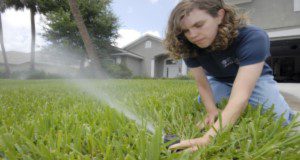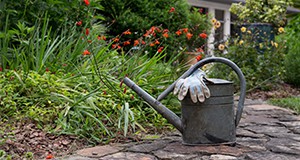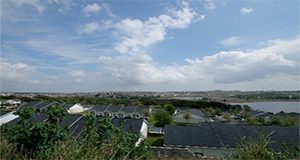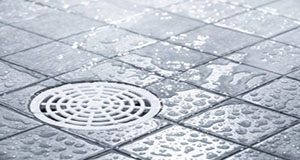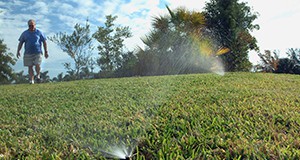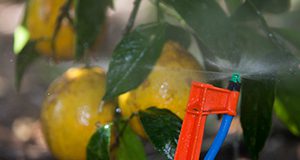Extension communication efforts can be made more effective when following a strategic communication plan. To guide a strategic communication effort, it is imperative to have purposeful messaging along with an understanding of your target audience and communication channel. This new 3-page document, published by the UF/IFAS Department of Agricultural Education and Communication, presents a synthesis of literature highlighting best communication practices in regard to water conservation efforts. Written by Jacqueline Aenlle and Laura A. Sanagorski Warner.
https://edis.ifas.ufl.edu/wc366
Tag: Water Conservation Education
Using Perceived Landscape Benefits to Subgroup Extension Clients to Promote Urban Landscape Water Conservation
Because a large percentage of water used in urban areas can be applied through irrigation, home landscape management practices are an important factor of water conservation. The information in this 5-page document is the result of a cluster analysis used to identify meaningful subgroups among home irrigation users to encourage water conservation behaviors. Written by Amanda D. Ali, Laura A. Sanagorski Warner, and Anil Kumar Chaudhary and published by the UF/IFAS Department of Agricultural Education and Communication, May 2018.
http://edis.ifas.ufl.edu/wc291
Using Environmentally Themed Videos to Help Extension Promote Good Landscape Management Behaviors
Water quality and quantity are major issues in the state of Florida, and water resources can be affected by the way residents choose to fertilize and irrigate their lawns and landscapes. This 4-page document discusses the use of videos to promote good landscape management behaviors. Written by Laura A. Sanagorski Warner, Alexa J. Lamm, and Joy N. Rumble and published by the Department of Agricultural Education and Communication, May 2018.
http://edis.ifas.ufl.edu/wc302
How Do Floridians Perceive Their Role in Protecting Water Quality and Quantity Through Landscape Practices?
Florida is faced with challenges in protecting both water quality and quantity; the state’s incredible number of home landscapes can positively or negatively impact water depending on how landscapes are managed. In 2016, Florida residents with irrigated landscapes were surveyed in order to create more effective Extension programs regarding landscape best management practices. This 4-page document discusses the results of this survey. Written by Laura A. Sanagorski Warner, Alexa J. Lamm, and Anil Kumar Chaudhary and published by the UF/IFAS Department of Agricultural Education and Communication, January 2018.
http://edis.ifas.ufl.edu/wc293
Understanding Good Irrigation and Fertilization Behaviors Among Households Using Landscape Design Features
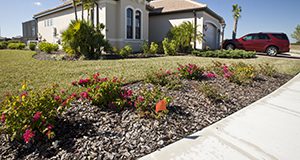
With increasing concerns over water resources in Florida, Extension can target households with irrigated landscapes to encourage practices that protect water quality and quantity. This document compares the water conservation education needs of different Florida household subgroups. Written by Anil Kumar Chaudhary and Laura A. Warner and published by the UF/IFAS Department of Agricultural Education and Communication, January 2018.
http://edis.ifas.ufl.edu/wc292
Communicating with Extension Clients about Water
Water impacts Florida’s tourism, agriculture, retail, and real estate development industries, all of which significantly contribute to Florida’s economy. Enhancing and protecting water quantity, quality, and supply is of ever-increasing importance to UF/IFAS Extension. This four-page document will provide an overview of how to communicate with Florida residents about water, including information about their preferred communication method and what water-related topics are of interest to Florida residents. Written by Alexa J. Lamm, Phillip Thomas Stokes, and Caroline G. Roper, and published by UF’s Agricultural Education and Communication Department, September 2017.
http://edis.ifas.ufl.edu/wc165
Residents' Perceived Landscape Benefits Can Help Extension Promote Good Landscape Management Practices
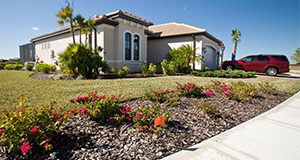
Households can help conserve and protect water resources through irrigation and fertilizer best practices without compromising the quality of their landscape. UF/IFAS Extension, along with Extension services across the country, conducts programs to protect water quality and quantity by educating communities and individuals about research-based landscape practices. This four-page fact sheet describes the results of a survey that can help Extension promote good landscape management practices. Written by Laura A. Warner, Amanda D. Ali, and Anil Kumar Chaudhary and published by the Department of Agricultural Education and Communication.
http://edis.ifas.ufl.edu/wc282
Water Conservation and Extension Participants: An Interesting Synergy
The home landscape is a place where there is a great opportunity for people to adopt irrigation practices and technologies that conserve water. However, a large portion of residents lack the required knowledge and skills to adopt some of those practices. This three-page fact sheet discusses using innovative evaluation approaches to demonstrate the impacts of statewide urban water conservation programs. Written by Laura A. Warner, Sebastian Galindo-Gonzalez, and Anil Kumar Chaudhary and published by the Department of Agricultural Education and Communication.
http://edis.ifas.ufl.edu/wc278
Engaging High Water Users in Water Conservation #2: High Water Users' Water-related Behaviors and Willingness to Act
Approximately 50% of Floridians’ daily water consumption is used for outdoor purposes, such as landscape irrigation; this is 20% higher than the national average. In order to alleviate the pressure on the precious water resources in Florida from various demands, increased public awareness and engagement in water conservation is needed especially among high water users. This four-page fact sheet is the second in a series discussing how Extension can improve high water users’ engagement in water conservation with a focus on high water users’ water-related behavior and willingness to act. Written by Pei-wen Huang and Alexa J. Lamm and published by the Department of Agricultural Education and Communication.
http://edis.ifas.ufl.edu/wc256
Differences in Perceptions of Agricultural Water Use between the General Public and Local Officials
Due to the scarcity of water resources among states and the influx of people, balancing agriculture and public water needs has become a contentious issue. Therefore, dialogue msut take place to educate and inform the general public and local officials about the reality of agricultural water use. This is the second article in a series describing the differences in perceptions of agricultural water use in Florida between the general public and local officials. This four-page fact sheet identifies the differens among groups for agricultural water use and provides ways to change Extension programming according to these differences. Written by Courtney T. Owens, Alexa J. Lamm, and Ricky W. Telg and published by the Department of Agricultural Education and Communication.
http://edis.ifas.ufl.edu/wc249
Attitudes and Perceptions of Agricultural Water Use in Florida Expressed by the General Public and Local Officials
The use of water has become increasingly contentious because an increased population is sharing a decreasing amount of water. Water remains Florida’s most plentiful natural resource but is at risk as the agriculture industry and Floridians demand more water for a variety of uses. This four-page fact sheet discusses the media’s influence on perceptions of agricultural water use, the measurement of attitudes and perception towards agricultural water use, and ways to educate the general public and local officials on this issue. Written by Courtney T. Owens, Alexa J. Lamm, and Ricky W. Telg, and published by the Department of Agricultural Education and Communication.
http://edis.ifas.ufl.edu/wc248
How the General Public and Local Officials Prefer to Learn about Agricultural Water Use in Florida
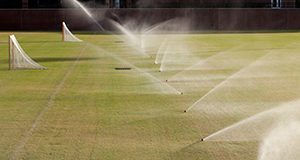
Water is a precious resource that is invaluable to the state of Florida. The amount of water being used daily in the state is estimated at 14.3 million gallons. Part of a series dedicated to describing the preferred ways of learning about agricultural water use in Florida, this study can be used to assist Extension educators and the agricultural industry at large in the development of strategies meant to inform people about the realities of water use. This three-page fact sheet helps Extension educators understand preferred learning mediums so they can provide useful information about agricultural water use. Written by Courtney T. Owens, Alexa J. Lamm, and Ricky W. Telg and published by the Agricultural Education and Communication Department.
http://edis.ifas.ufl.edu/wc247
